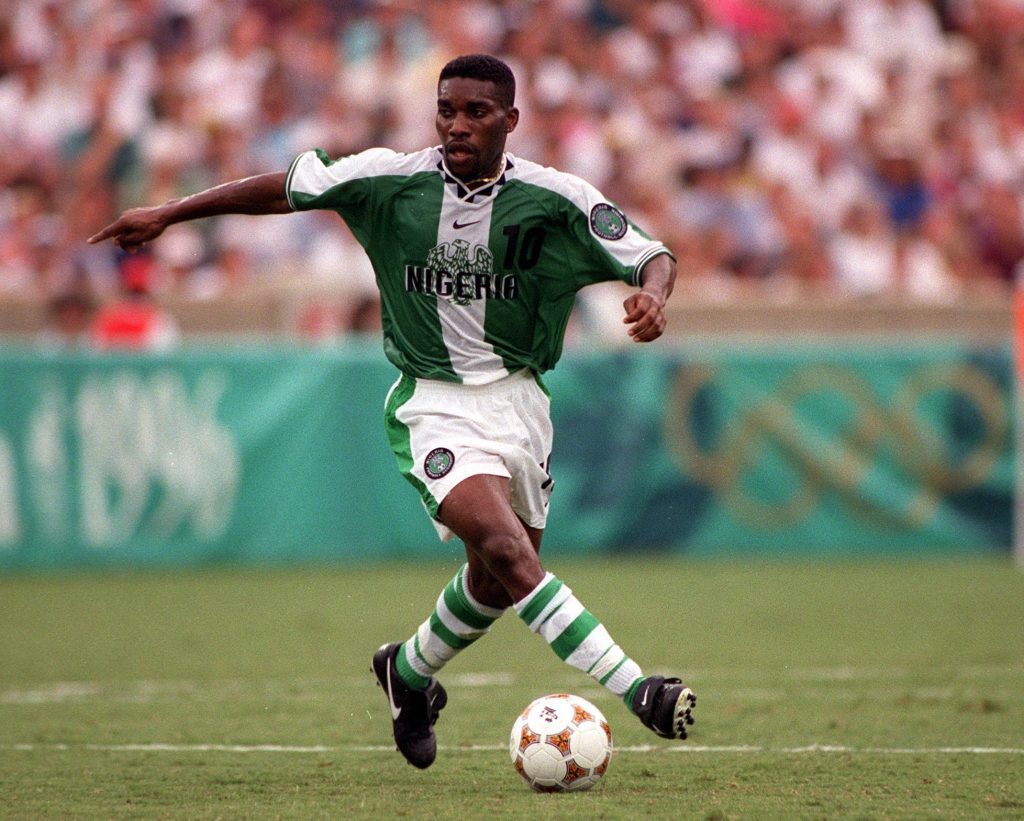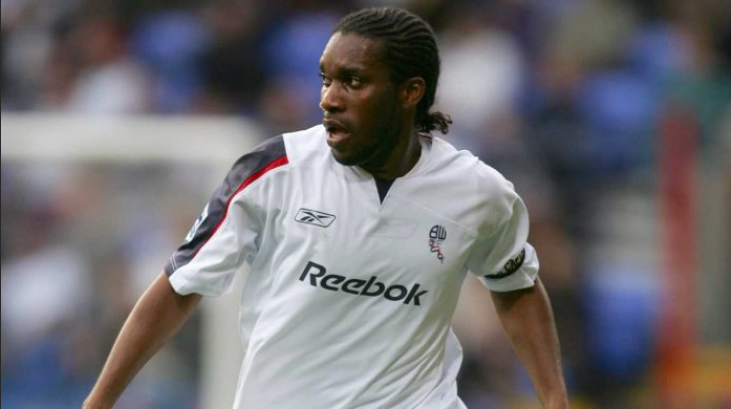Nanama Keita is more familiar to people in the United States because of his courageous journalism.
After all, the man had to escape his home country movie-style after upsetting the authoritarian government led by exiled former Gambian President Yahya Jammeh.
However, for many enthusiasts throughout West Africa,
Nanama Keita is more familiar to people in the United States because of his courageous journalism.
After all, the man had to escape his home country movie-style after upsetting the authoritarian government led by exiled former Gambian President Yahya Jammeh.
is still renowned as the biggest admirer of former Nigerian football superstar Jay-Jay Okocha.
The retired Super Eagles star has joyfully met the former Gambian sports journalist twice.
Nanama Keita, appointed sports editor for The Daily Observer, Gambia’s top newspaper, at a young age, believes his role model transformed the way Africans approach the sport, imbuing it with an attacking style similar to Brazil’s Samba.
“I’ve got a great passion for African soccer and, in particular, for one great African legend, Jay-Jay Okocha,” Nanama Keita said from his United States base, where he has lived since being forced into exile almost 11 years ago.

In his football eyes, Okocha’s emergence onto the African soccer scene saw the continent embrace Brazil’s ‘Samba train’, bringing on board a style that ruled the world for decades in terms of appeal.
In 2011, Keita, fearing for his life, fled from Gambia. According to Keita’s interview with the Media Foundation of West Africa (MFWA) from New York, he had to leave because he was concerned about his safety. Keita reported that the Gambia security agents made serious attempts to arrest him, and he feared that they would harm him if they succeeded.
The young reporter, who rose to the position of Deputy Editor-In-Chief at the government-run Daily Observer, was detained supposedly for a ‘criminal offence’.
This was based on accusations of espionage for a Gambian online newspaper in the United States that vehemently criticised Jammeh’s administration.
Keita fled his native country in 2011 when he learned that Gambia security agents were attempting to apprehend and potentially harm him. He was held in inhumane conditions in a Banjul prison before escaping and crossing into Senegal under the cover of darkness.
But that has never stopped him from following the man nicknamed ‘Jay-Jay’.
“I even still follow him post-football. I’m one of his keen followers on Instagram, where he’s more active than on other social media platforms,” Keita says.
In 2009, Keita, a sergeant in the US Army, met the retired Nigerian footballer known for his dribbling skills. The encounter occurred a year after Jay-Jay’s one-season stint with Hull City in England.
“I met my all-time hero, Jay-Jay, in Nigeria for the first time in 2009. I was in Abuja for FIFA-sponsored training, coinciding with a World Cup qualifier.
“I was made aware of where the Nigerian team was staying and when Jay-Jay was expected to visit the team. On the day Jay-Jay was visiting the team hotel, I was informed, and I then went there, where we would meet. We chatted briefly and took some pictures before I left the hotel the happiest man on earth,” reveals Keita.
In 2010, the ex-Super Eagles talisman was serving as a television analyst for SuperSport during the World Cup finals in South Africa when the Gambian journalist would run across him once more.
“I was in South Africa for the 2010 FIFA World Cup tournament when I was told that Jay-Jay was also in Johannesburg. He was staying at the same hotel with former Arsenal manager Arsene Wenger,” recalls Keita.
“At this time, I had already authored an article about our first meeting that would feature in a book about the 2010 World Cup, a copy of which I was having on me. So, I decided to visit his hotel for our second-ever meeting, during which I handed him a copy of the book.”
Considering his age, 36 now, Keita has been a lifelong fan of Okocha, whom he regards as more than a footballer but a cultural icon of the game.
He had religiously followed Okocha’s career from 1998 when he made that record transfer from Fenerbahce to Paris Saint-Germain.
His obsession with the skillful midfielder went all the way to 2008 when Okocha hung his boots at Hull City in the English Premier League.
In Keita’s eyes, Jay-Jay’s greatness was less about individual accolades and more about his broader impact on the culture of world soccer.
Of course, the global recognition and the moments of genius live long in many a footballer’s memory.
And his repertoire of trickery means his style still resonates in today’s culture long after he hung his boots.
Interestingly, Keita being nicknamed after his idol started with friends during the 1998 World Cup finals in France.
“I was very young then, and this was also the year Okocha emerged on the world soccer scene. From that year until today, friends call me Okocha, or simply Jay-Jay.”
Gambia is a relatively unsuccessful footballing nation, having qualified for the tournament in 2021 for the first time.
Nonetheless, football is still well-liked, perhaps because of its proximity to African football powerhouse Nigeria.
“As the smallest nation on the West Coast of Africa, Gambia always see Nigeria as a big brother in many respects – football, education, you name it,” Keita explains.
“And football is also perhaps the only game that enjoys worldwide popularity. Football has the power to find fans in almost every corner of the world. So, coming from Gambia, which is a minnow nation in football, it wasn’t hard to relate to Nigerian football. During this time, and until today, Nigerian players are as known and popular in Gambia as they are in their native Nigeria.”
